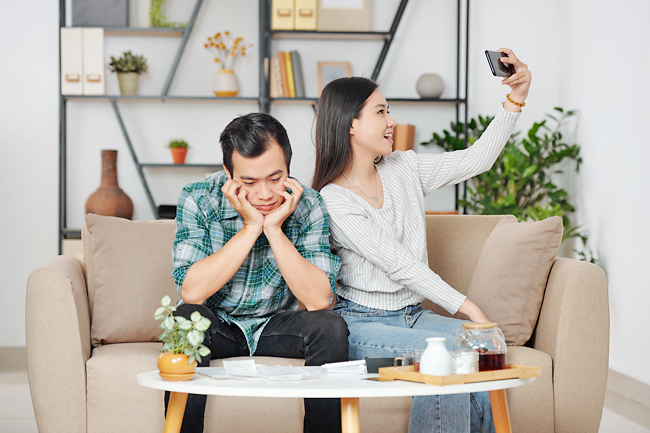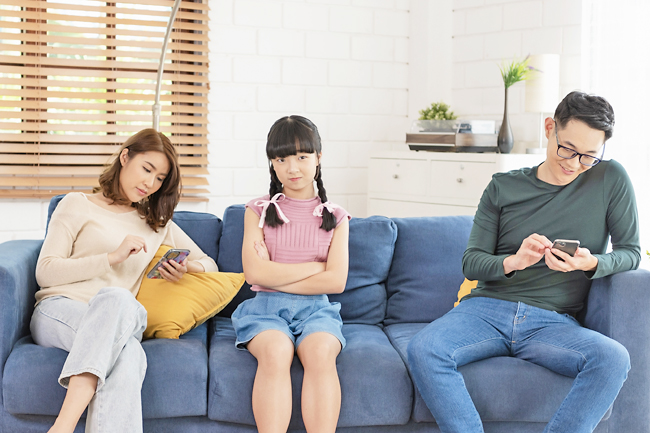AFP – Our smartphones accompany us everywhere, from the supermarket queue to the commuter train and even, for some people, to the bathroom. But the pervasiveness of having access to a digital connection at all times has an impact on our personal well-being.
A study published in the Journal of Occupational and Organizational Psychology suggests that it can be harmful in many ways, including at work.
The authors of this research looked at what English speakers call “phubbing”. This term, derived from the contraction of “phone” and “snub,” refers to the act of ignoring the people around because you’re paying attention to a screen.
The practice is said to be particularly widespread among couples, which can of course become a source of tension and even quarrels.
“Phone usage is eroding the connection between couples and hindering their capacity to discuss and address stresses and concerns that are playing on their mind,” said co-author of the study Professor Yasin Rofcanin in a statement.
But Yasin and his colleagues have found that the effects of phubbing are not limited to the personal, intimate sphere. After analysing two weeks’ worth of behaviours of 65 American couples with children, with both individuals in full-time employment, the researchers noted that smartphones prevent spouses from supporting each other in maintaining a healthy balance between their family and professional responsibilities.



Experts have frequently emphasised the importance of finding a balance between time devoted to work and time devoted to private life, especially for women.
Women often find themselves juggling personal and professional obligations, in the absence of an equal division of domestic tasks in most households. This takes a toll psychologically, especially if they can’t talk to their partner because they’re too busy scrolling endlessly on their phone.
The importance of screen-free time
Both men and women agree that the smartphone interferes in their married life a bit too much. Six out of 10 French people, for instance, feel that their partner spends too much time on their cell phone, according to a January 2021 survey by research firm Poll & Roll for Bouygues Telecom.
At the time, a quarter of the 1,000 respondents admitted to checking their smartphone notifications when they woke up, even before saying hello to their partner. All of which can lead to a feeling of estrangement within the couple.
This distancing is detrimental both romantically and professionally. In fact, Yasin and his colleagues have observed that women whose partners engage in “phubbing” at home are less creative at work.
They are less likely to adapt their job descriptions to their ambitions and wishes – a practice known as “job crafting” – than those who enjoy their partner’s full attention at home.
As the researchers point out, job crafting is useful in many ways, not only for the workers themselves, but also for their employers. It is a powerful mechanism in terms of collective commitment and performance. Companies would therefore gain in making their employees aware of the dangers of “phubbing,” and encourage them not to be overly connected outside working hours.
Meanwhile, couples are advised to make sure that they take the time to spend phone-free moments together in order to protect their connection and sense of togetherness.
Smartphones can be an incredible tool for finding out more about the world and others, as long as one’s eyes are not permanently glued to the screen.





